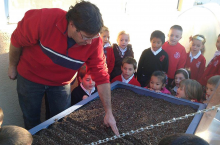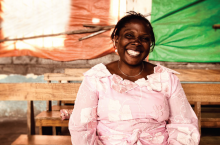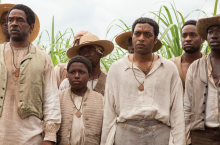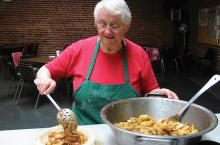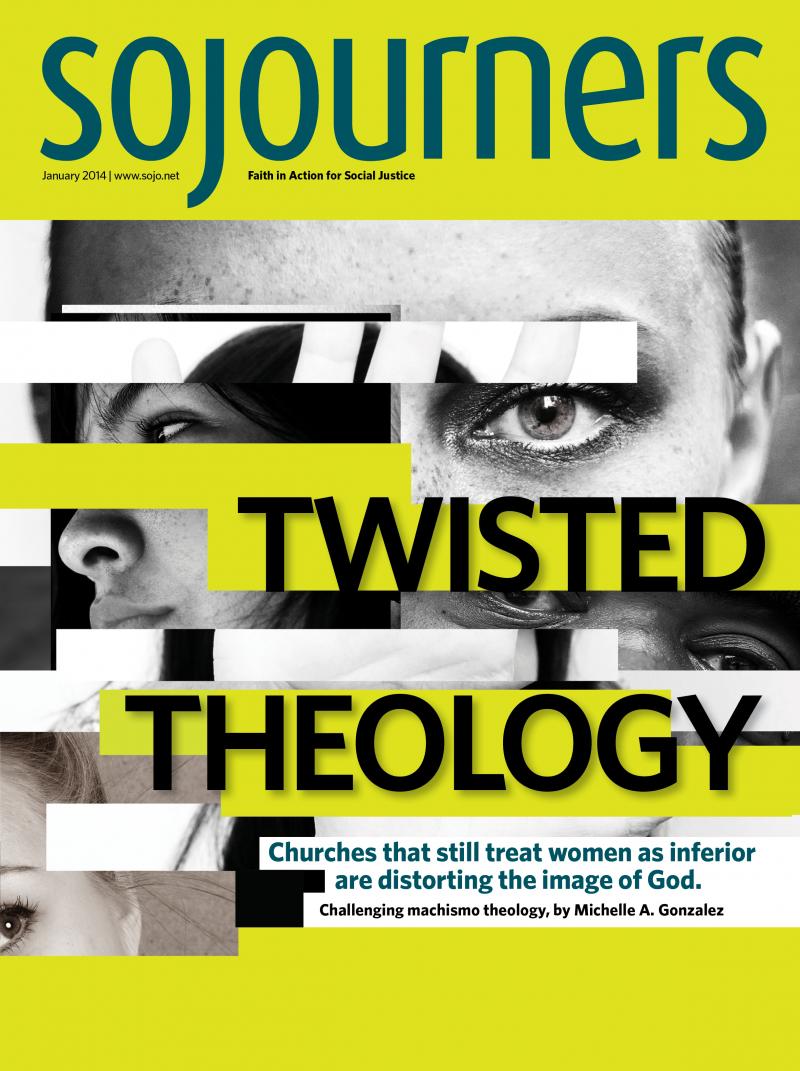
Sojourners Magazine: January 2014
ON JAN. 15, had his life not been tragically cut short, Martin Luther King Jr. would be turning 85. In this issue, political economist Gar Alperovitz tantalizes us with what might have been. In the last few years of his life, King was coming to a more radical understanding of the nation’s economic system—both its role in creating inequality and the possibility of a more democratic economy. As inequality has increased in recent years to unprecedented levels, the economic issues King was grappling with have become only more important for all of us.
Most sectors of society have seen real progress in advancing women’s leadership. Yet too much of the church is still run by an obsolete framework of patriarchy, rooted in a flawed understanding of scripture, which denies women ordination and other leading roles. Michelle A. Gonzalez explains why we need a theology of women that recognizes and embodies the incontrovertible insight that both men and women are made in the image of God—and that such recognition has profound implications for how we do church.
As the U.S. military prepares to begin the exit from Afghanistan, Lisa Schirch writes of military leaders learning the limitations of firepower as the “solution” to political problems. Mia Alvarado tells the story of her friend, Iraq veteran Joshua Casteel, and his death from lung cancer, likely caused by the toxic smoke from “burn pits” in Iraq. There are 2.5 million veterans of the wars in Iraq and Afghanistan; their struggles will continue to be a challenge and an opportunity for churches dealing with consequences of war.
Dr. Paul Farmer—called the “man who would cure the world” in the bestseller Mountains Beyond Mountains for his work in Haiti, Peru, and elsewhere—discusses Pope Francis’ recent meeting with Gustavo Gutiérrez and describes how the principles of liberation theology can shape a more moral, and more effective, approach to public health.
All these stories, filled as they are with examples of love in the face of tragedy, help us to follow more closely the one who came to make us whole and to make the world “as it is in heaven.”
